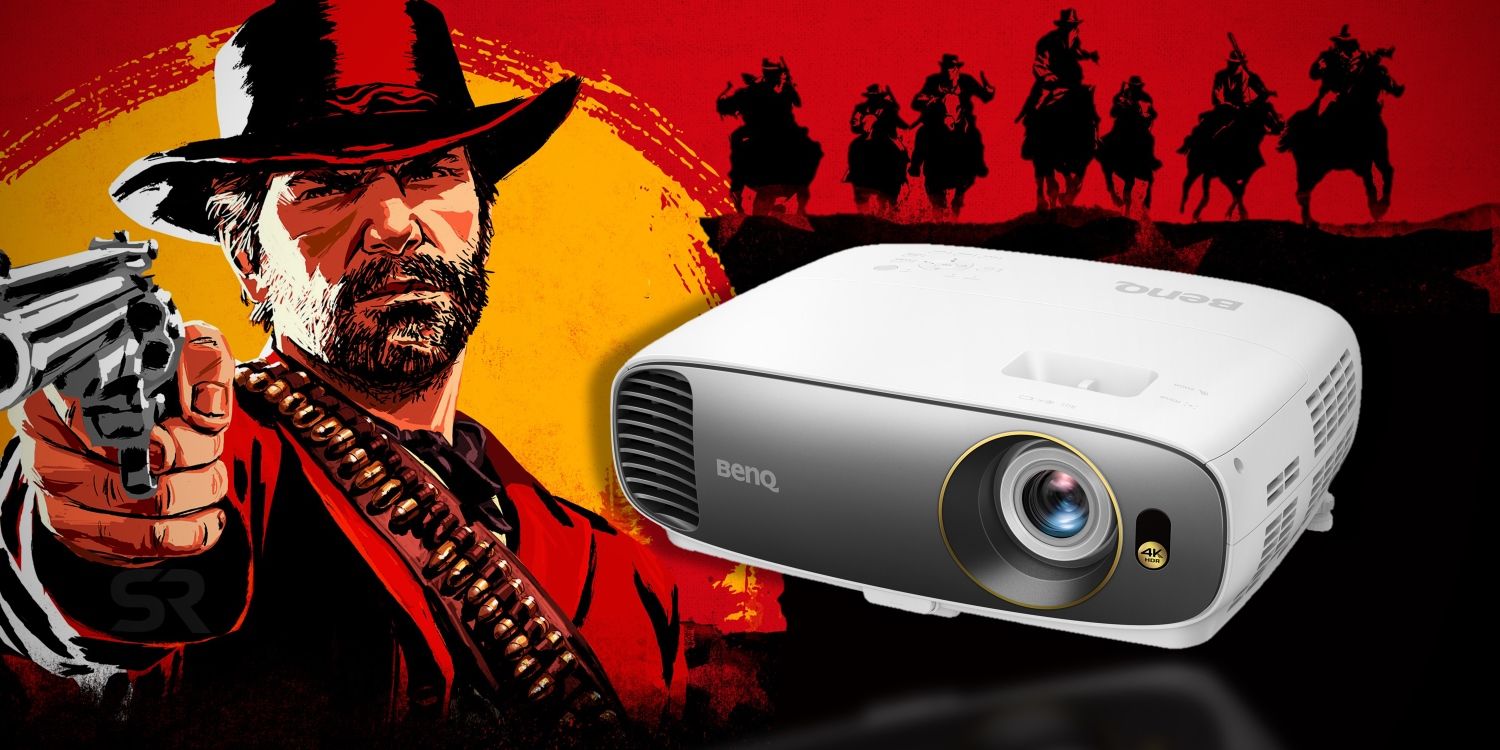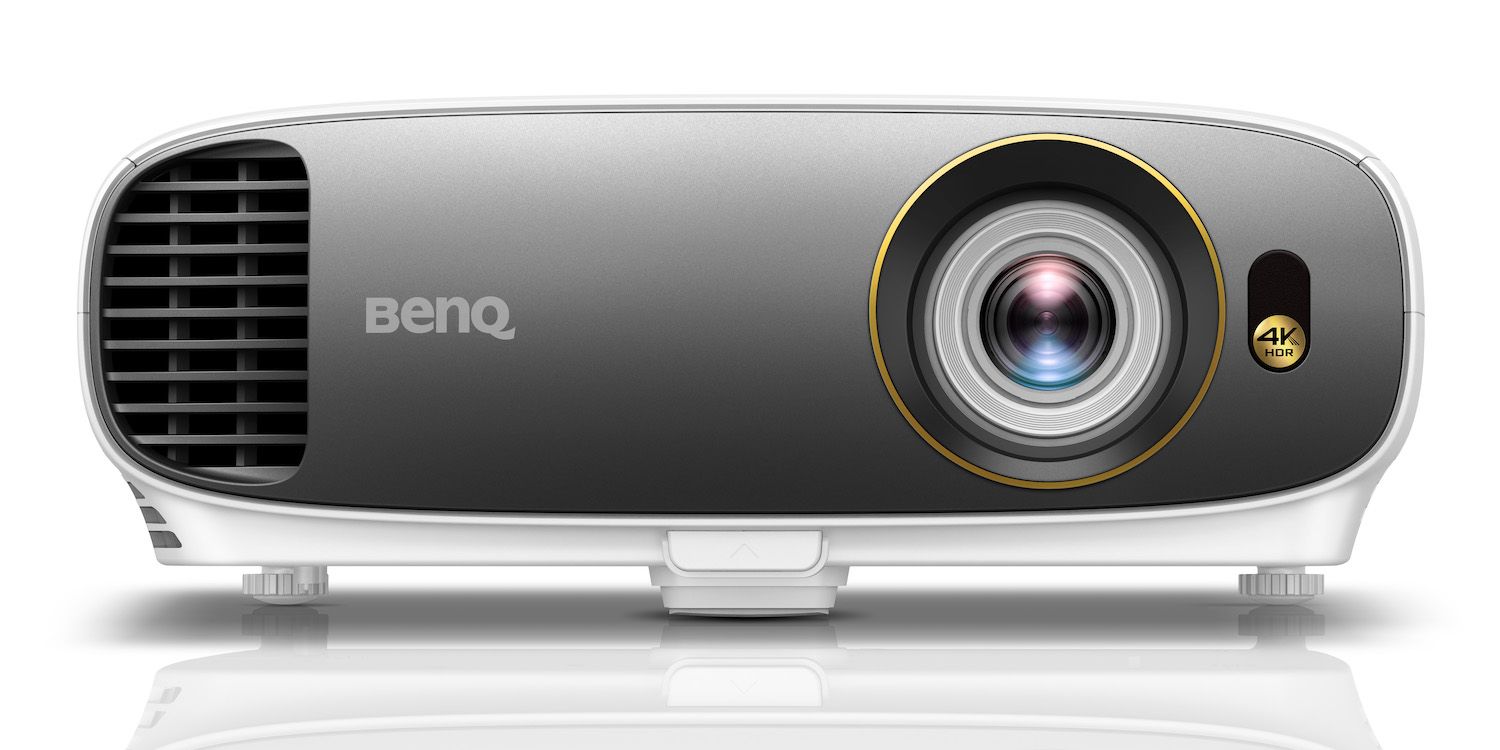Is a 4K projector a better option for your home theater than an UltraHD TV? Previously, the answer was more straightforward than it is today - considering 4K projectors were unaffordable for anyone but the most affluent consumers. However, as 4K technology became less expensive in the TV business, home theater projectors capable of supporting the format (without breaking a buyer's bank) also hit the market at a budget price point. As a result, in 2018 consumers have a tangible reason to consider opting for a 4K projector setup over a comparable TV option.
Of course, this does not mean a 4K projector will be the right option for any or even most people in the market for a new 4K display; still, with prices dropping on everything 4K (TV, projector, Blu-ray player, etc) and Holiday gift-giving fast-approaching, we decided to test the new generation of 4K projectors to help readers make an informed decision ahead of 2018 Black Friday TV deals.
We went hands-on with the BenQ HT2550 4K Home Theater Projector - one of the next-generation UHD/HDR projectors that have made 4K affordable. Note: This post is not a formal review of the projector itself - and while it is used in reference to the larger 4K projector vs. UltraHD TV debate we will not be assigning a review score or official endorsement for the BenQ HT2550. Readers who are interested in a deep-dive review of the projector, its technical specs and features, will want to consult consumer technology reviews before making a purchase. Our goal is to use our experience with the HT2550 to contextualize pros, cons, and factors that a movie and TV fan should consider when debating between a 4K projector or TV for their home theater setup.
Now that price is less of a hurdle, the BenQ HT2550 lists between $999.00 and $1,499.00 depending on the retailer, there are only a few core requirements a buyer should consider that will, inherently, make 4K projection a less-viable option, specifically: room space and lighting. These two factors, more than anything else, determine whether a projector - any affordable projector - will work. At the most fundamental level, projectors need room to project - and most need darkness to do it.
For this reason, cinephiles living in apartments or small homes with a modest living room space will not be suitable for 4K projection. A projector can be placed closer to the projection screen than recommended and still produce a crisp image (BenQ recommends 6.5 feet minimum to create a 60-inch compatible 4K image) but even if you're willing to sacrifice optimal settings, the distance between screen and projector must be unobstructed - a challenge in tighter, ultra-efficiency spaces. Similarly, ambient light dulls and washes out projected images. Closing blinds and turning off lights can help mitigate the issue but viewers will be sorely mistaken if they intend to use a projector as their primary TV device on a sunny afternoon in a living room saturated by natural light.
Many projectors - especially higher-end models - include features that attempt to mitigate these issues (short throw focus and higher lumens, for example). Still, buyers who attempt to fit a projector into a suboptimal living room setup are better off purchasing a 4K TV - which requires less space and maintains a brighter image when hit by stray lighting.
That said, for consumers with a dedicated home theater space or a room with sizable square footage and little natural light, a 4K projector is an attractive and potentially preferable option. Cinephiles should already know that a bigger image provides a more immersive viewing experience - and it's hard to beat the size of a 4K projected image. The BenQ HT2550 is capable of creating a 200-inch comparable image in 4K with 24 feet of distance from the screen - in a properly dark space. Understandably, most buyers will not have room for 24 feet of distance nor 200-inch worth of diagonal screen space but that's the scale that projection makes possible.
Comparatively, a 100-inch Sony 4K TV would run buyers around $55,000.00 - and, while a TV at that price is packed with premium clarity, color, and contrast, it's still half the image size BenQ's HT2550 is capable of displaying in 4K. To create a similarly sized 100-inch screen, HT2250 owners would only need 10 feet of distance - making a consumer 4K projector an affordable option for viewers with suitable space. The resulting picture itself is sharp - full of crisp colors and striking contrast. We tested a variety of eye-popping 4K movies (including Black Panther, Wonder Woman, and Star Wars: The Last Jedi) all of which looked excellent. Though, playing Red Dead Redemption 2 in 4K HDR on a 120-inch picture received the biggest reaction from the team.
Of course, the quality of a projector image, just like TVs, depends on the make, model, and range of premium features. Consumer 4K models, like the HT2550 are entry-level gateways to high-end audio-visual tech - which is an accurate way of approaching whether or not a projector is the best option for your household. Despite improved affordability, a projector doesn't, on its own, check all of the boxes that a TV can (for users seeking an all-in-one solution) and will, in most cases, require additional spending (a high-quality screen and surround sound speakers to match that gorgeous 4K picture).
For example, the HT2550 includes a single 5-watt speaker - great for playing a movie clip during a powerpoint presentation but nothing that a serious cinephile would be comfortable using for regular audio delivery. Similarly, the BenQ HT2550 only included one 4K HDMI port - meaning that users who want to plug-in a variety of 4K devices (PS4 Pro, 4K blu-ray player, cable box, etc) will need a 4K HDMI switcher. 4K projectors designed for home theater use range in price from $999 to over $60,000 (and counting) - leaving significant room for upgrading: higher contrast and brightness, among other options, if consumers have the money to invest in premium features.
Still, projectors like the HT2550 pack serious power for their main use - and, what they might lack in ultra-premium picture, they make up for in versatility - including a range of features that, for the right consumers and circumstances, provide more flexibility than a TV. In addition to the home theater setup, we tested the BenQ HT2550 in-office and outdoors - where we held a movie night (with Infinity War projected onto a screen draped on the side of a house). We even made use of a Roku Streaming Stick - which allowed the team to switch over to the first episode of Daredevil season 3 on Netflix after Infinity War - all from the comfort of the grassy backyard.
We topped off our time with the HT2550 playing 4-player Mario Kart 8 Deluxe on Nintendo Switch - which was a fitting conclusion for our experience with the projector. For decades Nintendo has produced quality products that, though they weren't the most expensive or feature-rich, made video games accessible and extra fun. The BenQ HT2550, along with the next-generation of 4K projectors, is poised to serve a similar function - bringing big screen experiences and 4K spectacle to home theaters. No doubt, a lot of households will not be a fit for a 4K projector setup but, for those that are, it's worth considering (and researching) whether to make the jump from TV to projection.
NEXT: Xbox One X Is Awesome For The Right Type of Gamer
Note: BenQ provided a review unit for this feature. Learn more about the BenQ HT2550.





